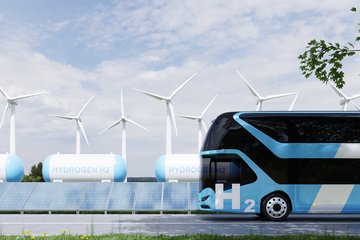All genres
701.
Talk
Materials design and discovery on the computer: Prospects and challenges. IUMRS-ICA2014, Fukuoka, Japan (2014)
702.
Talk
Materials design based on predictive ab initio thermodynamics. CMD25 JMC , Paris, France (2014)
703.
Talk
Modeling Ductility at the Atomistic Scale: Status and Challenges. MSE 2014, Darmstadt, Germany (2014)
704.
Talk
The role of hydrogen-hydrogen interaction in understanding H embrittlement: An ab initio guided multiscale approach. Hydrogen Conference, London, UK (2014)
705.
Talk
Design of structural materials based on ab initio computed phase stabilities. MS&T Conference, Orlando, FL, USA (2014)
706.
Talk
Ab initio based design of structural materials: Status and challenges. Expertenpanel Computer Simulation of Material Structures and Properties, Schott AG , Mainz, Germany (2014)
707.
Talk
Identifying H induced failure mechanisms in structural materials: A multiscale approach. MRS Fall Meeting, Boston, MA, USA (2014)
708.
Talk
An ab-initio study of muscovite mica. DPG Frühjahrstagung, Dresden, Germany (2014)
709.
Talk
Adaptive behavior in the Fe–C system. Pearlite workshop, MPIE, Düsseldorf, Germany (2014)
710.
Talk
Ab initio study on the role of interfaces for structural transformations in the Fe–C system. TMS 2014, San Diego, CA, USA (2014)
711.
Talk
Ab initio based insights into structural transformations and the role of interfaces in Fe–C alloys. DPG 2014, Dresden, Germany (2014)
712.
Talk
Atomistic origin of structural modulations in Fe ultrathin film and impact for structural transformations in Fe–C alloys. ADIS Workshop 2014, Ringberg, Germany (2014)
713.
Talk
Computational coarse-graining in configuration space as basis for a predictive ab initio thermodynamics. EPSRC Symposium, Warwick, London, UK (2013)
714.
Talk
Strong and weak magnetic coupling in chromium. ICAMS Advanced Discussions - Current Developments, Ruhr-Universität-Bochum, Bochum, Germany (2013)
715.
Talk
First principles at finite temperatures: New approaches and massively parallel computations. IMR Seminar at Institute for Materials Research, Tohoku University, Sendai, Japan (2013)
716.
Talk
First principles at finite temperatures: New approaches and massively parallel computations. CMSI International Symposium 2013: Extending the power of computational materials sciences with K-computer, Ito International Research Center, University of Tokyo, Japan (2013)
717.
Talk
Aspekte der Wasserstoffversprödung von Stählen: Verständnisgewinn durch quantenmechanische Simulationen. AKE Workshop, DECHEMA, Frankfurt a. M, Germany (2013)
718.
Talk
Ab initio based thermodynamics of and phase transformations in Ti alloys. EUROMAT Conference, Sevilla, Spain (2013)
719.
Talk
kappa-carbides as precipitates in austenitic steels: Ab initio study of structural, magnetic and Interface properties. EUROMAT 2013, Sevilla, Spain (2013)
720.
Talk
Ab initio based multiscale modeling of structural materials: From a predictive thermodynamic description to tailored mechanical properties. CECAM Conference, Platja d’Aro, Spain (2013)











